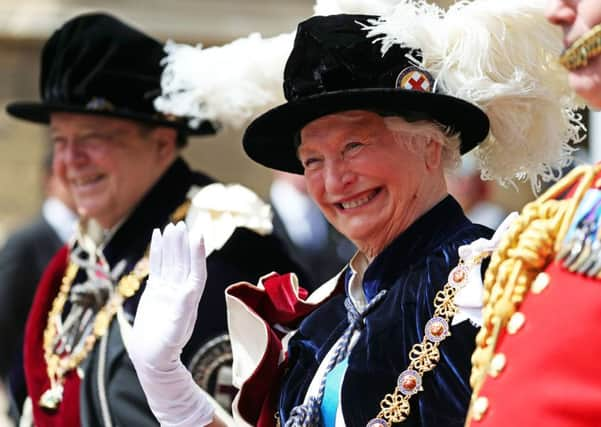Dame Mary Peters welcomed into Order of the Garter at Windsor by Queen


The pomp and pageantry of Garter Day was on display as senior members of the royal family and foreign monarchs attended the order’s annual service.
Wearing the lavish velvet robes, glistening insignia and plumed hats of the Order of the Garter, the Queen and the royal knights processed through the grounds of Windsor Castle.
Advertisement
Hide AdAdvertisement
Hide AdNewly invested members of the order King Felipe VI of Spain and King Willem-Alexander of the Netherlands - now supernumerary, or stranger knights - proudly walked to St George’s Chapel with the Prince of Wales, Duke of Cambridge, Duke of York, Princess Royal and Earl of Wessex.
Ex-Portadown College pupil Mary Peters was also formally appointed to the order today.
Eilish Rutherford, Chairman of the Mary Peters Trust, said: “Everyone at the Trust would like to congratulate Mary on her prestigious achievement on this very special day at Windsor Castle. It’s a huge honour for Mary to be appointed to the Order of the Garter. We are very proud and excited that Mary and the wonderful work and contribution she has made to sport and Northern Ireland since winning her Gold medal in 1972 has been recognised in this way. We will be sharing in the joy of this amazing event and what a privilege that is.”
Former Prime Minister Sir John Major, Lord Phillips of Worth Matravers, a past president of the Supreme Court, and Admiral Lord Boyce, a former head of the UK’s armed forces are also Garter knights and were part of the procession. The Queen, who arrived by state limousine, is sovereign of the order and appoints new Knights of the Garter without consulting ministers.
Recipients of the honour are chosen because they have held public office, contributed to national life or served the sovereign personally.